Handmade Soap in Africa – Market Transformation and Opportunity
The African market is shifting to natural handmade soap. Learn why consumers prefer clean ingredients, cultural value and skin benefits over industrial soap.
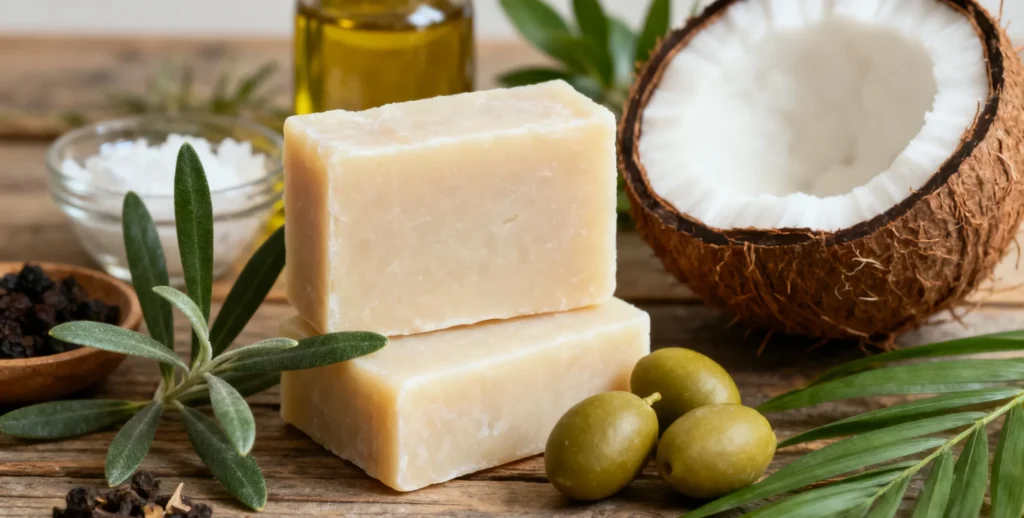
Handmade Soap in Africa – Market Transformation and Opportunity
The African daily essentials market has long been dominated by low-cost industrial cleaning products, but this pattern is undergoing subtle changes. According to data from the African Development Bank, the middle-class population in sub-Saharan Africa has grown by nearly 60% in the past decade, and these emerging consumers now demand higher quality and safer personal care products.
Today, handmade soap is steadily entering mainstream retail channels. In cities like Lagos (Nigeria) and Nairobi (Kenya), artisan soap now appears alongside mass-produced industrial soap in supermarkets. Its shelf presence continues to expand each year.
Compared to factory-produced soap, natural handmade soap offers more skin-friendly formulations. It avoids synthetic fragrances, harsh chemicals and preservatives, and instead uses natural plant oils such as palm oil, coconut oil and olive oil as raw materials. Cold-process production retains nutrients like glycerin and Vitamin E, making products gentler and safer for daily use. In a market study from Accra, Ghana, 78% of consumers preferred products with “clean ingredients and natural benefits,” and this figure rises to 91% among young people under 30.
Previously, price limited market adoption, but localized production is changing this. In Kenya, the “Green Life” artisan brand uses locally sourced avocado oil and shea butter, keeping price ranges between $3–$5 per bar—competitive with premium industrial soap while building higher customer loyalty. These early market results also highlight the growing benefits of handmade soap in terms of consumer health confidence and brand trust.
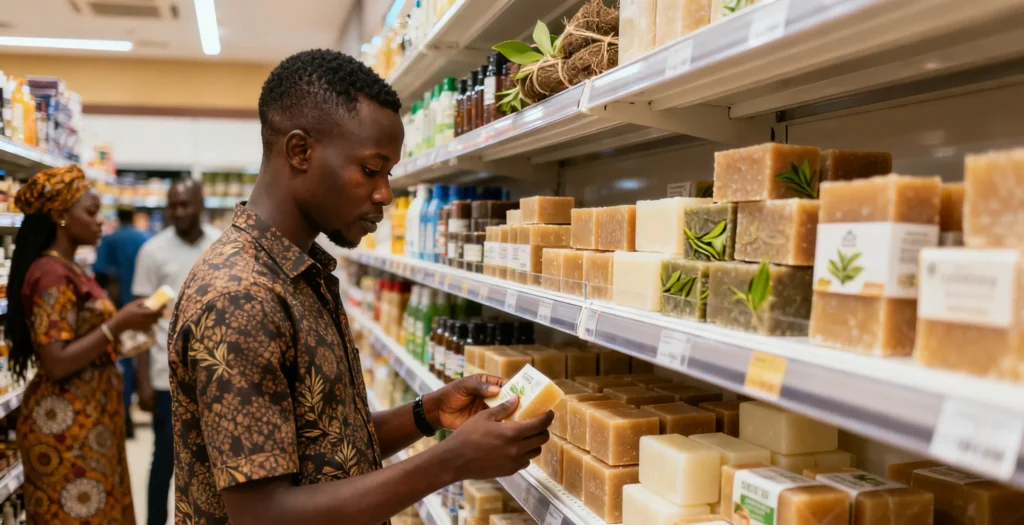
Localization Development of Handmade Soap in Africa
The African market for craft soap shows strong regional identity—not only in material sourcing but also cultural presentation.
South Africa: Brands incorporate native ingredients such as aloe vera, marula oil, and tea tree oil for their moisturizing and antibacterial properties.
Ethiopia: Soap makers blend volcanic clay and raw honey, adapting formulas to dry highland climates.
West Africa: Turmeric, moringa, cocoa and herbal ingredients rooted in local tradition are popular in body care products.
Cultural value enhances product storytelling. Nigerian brand Heritage Soap engraves Yoruba tribal symbols into bars to express cultural heritage. In Tanzania, soap packaging often includes Swahili proverbs, transforming a daily product into a meaningful gift. Seasonal gift sales show strong performance, increasing by more than 300% during festival periods.
Localization is not limited to formula—it also reshapes supply chains. Many producers follow a “company + cooperative” model, sourcing shea nuts or essential oils from local farmers. In Uganda, a rural artisan soap cooperative has helped over 200 women gain stable income, improving entire community livelihoods.
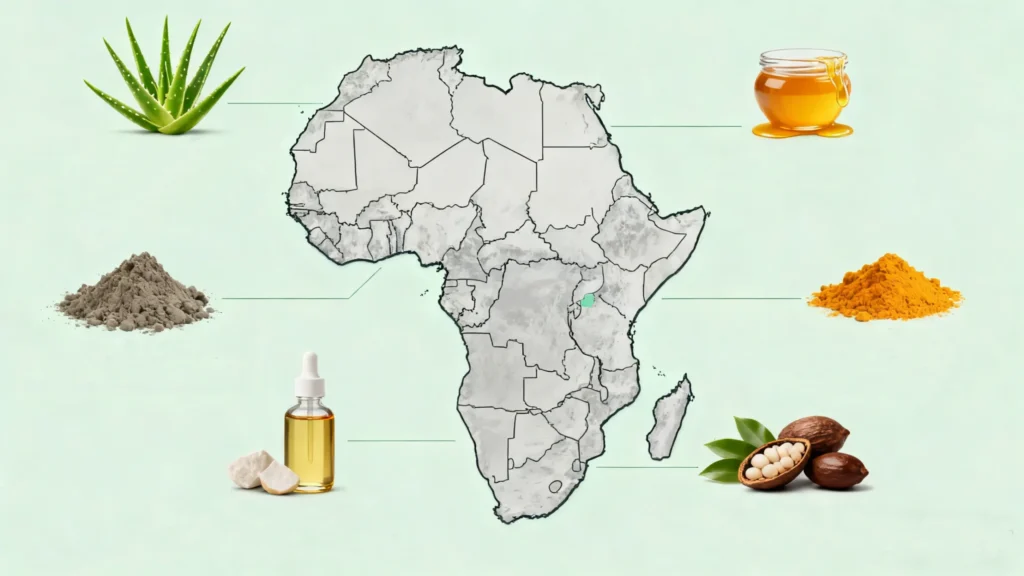
Market Challenges and Future Opportunities
Despite promising trends, artisan personal care brands still face obstacles across Africa.
Consumer awareness barriers – In Zimbabwe, market testing shows it takes three or more brand interactions to change misconceptions.
Infrastructure limitations – Unstable power supply slows production consistency and affects storage of certain plant-based ingredients.
Regulatory uncertainty – Ingredient labeling standards differ by country. An importer in Kenya once had products seized due to lack of a “non-therapeutic use” statement.
However, opportunities outweigh challenges. Africa’s urban population is expected to exceed 1 billion by 2050, increasing demand for safe daily necessities. E-commerce accelerates distribution—online sales of natural handmade soap in South Africa are growing at 45% annually, far higher than offline retail. Social media marketing also drives discovery—a Nigerian video showing the craft soap-making process earned over 5 million views, doubling sales within weeks.
Looking ahead, three industry trends will define growth:
Product specialization – More formulas for dry skin, oily skin, baby care, and sensitive skin.
Full supply chain localization – From ingredient farming to packaging and brand storytelling.
Cross-industry collaboration – Co-branded hotel amenities, spa products and wellness therapies will expand premium opportunities.
With its health benefits, clean ingredient story and local cultural identity, the benefits of handmade soap go beyond cleansing—it has become an economic engine and a rising consumer lifestyle choice in Africa.
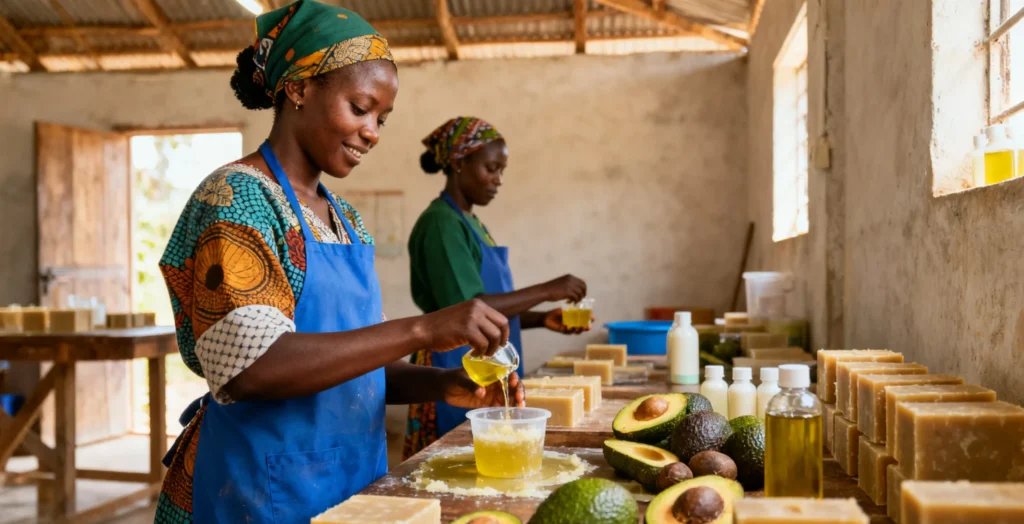
Table of Contents
Related Post for You
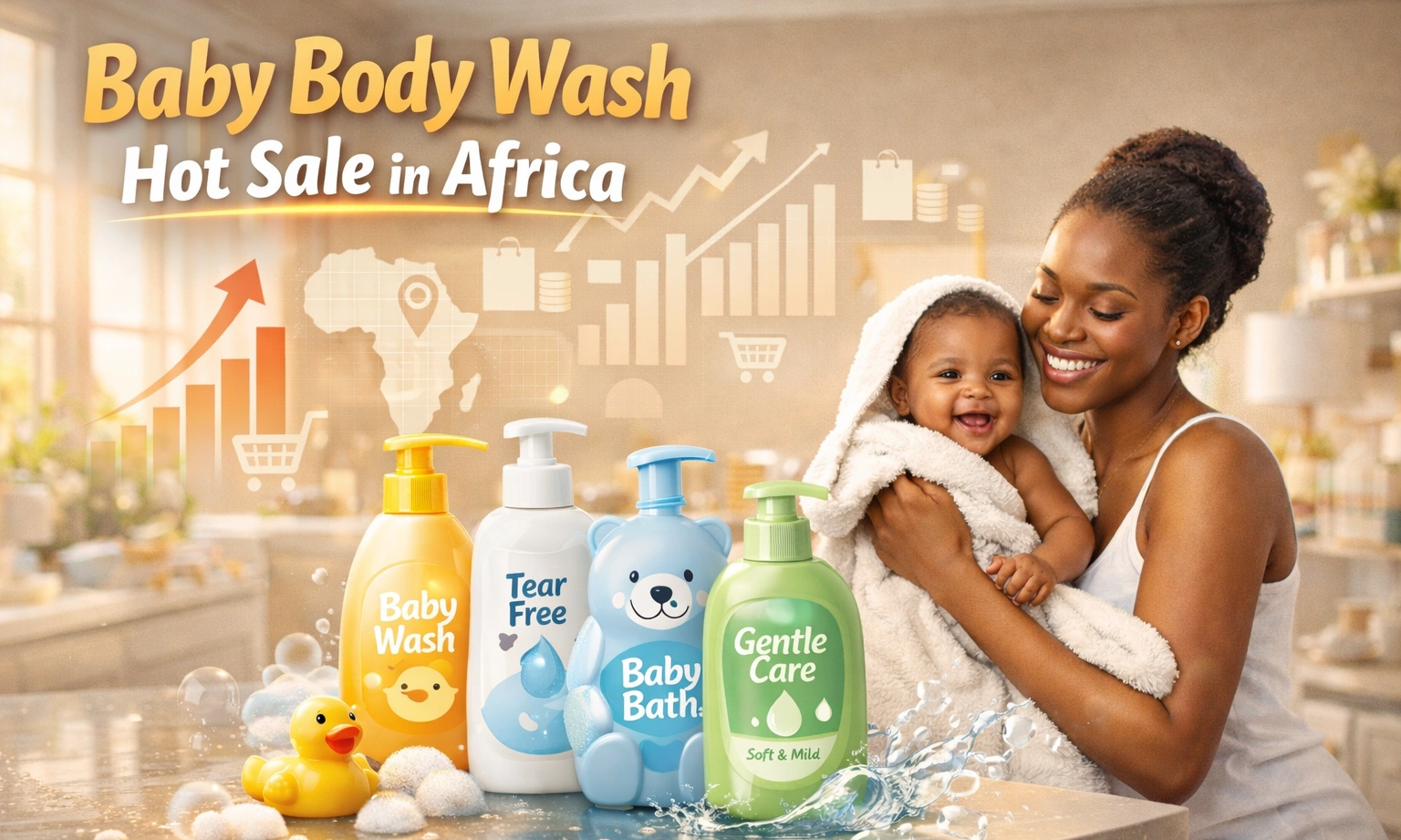
Baby Body Wash Hot Sale in Africa
Baby Body Wash Hot Sale in Africa – Market Trends, Demand Growth & Business Opportunities Explore why baby body wash is booming in Africa. Learn
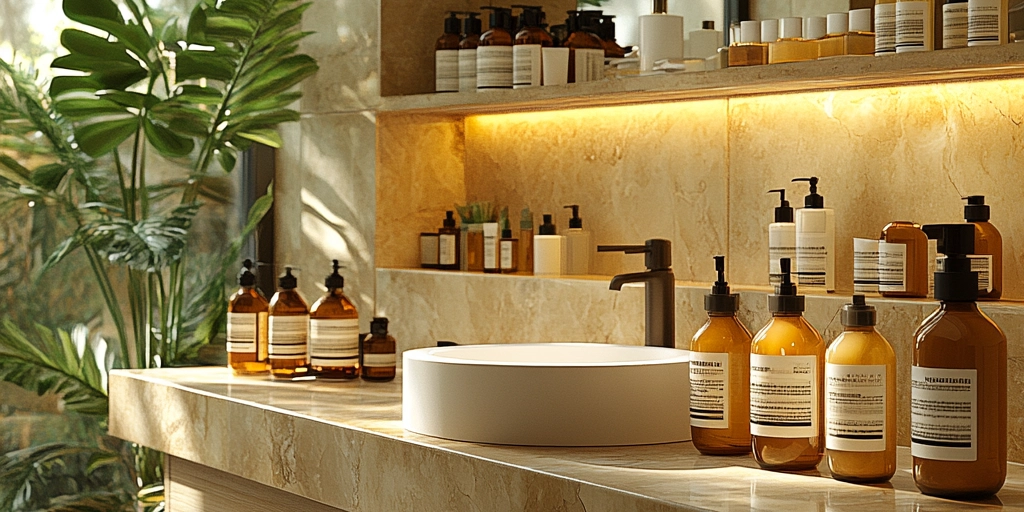
The Rise of Scented Antibacterial Gel for Men and Women
The Rise of Scented Antibacterial Gel for Men and Women Blending herbal wisdom with modern cleansing technology, this product awakens the skin with earthy fragrances,

Why Soap Is More Popular Than Body Wash in the Middle East
Why Soap Is More Popular Than Body Wash in the Middle East Understand why soap remains more popular than body wash in the Middle East.

Chinese Top Skin Care Supplier
Building 8, Huanya Industrial Park, Taiping Town, Conghua District, Guangzhou, China
Tel: +86 13922328503
E-mail: infocassillia@gmail.com
quick links
Products
Why CASSILLIA
- OEM/ODM Customization
- Market-Focused
- Reliable Supply Chain
- Competitive Pricing
- One-Stop Solution
- Global Trade Show Experience
- 23 Years of Manufacturing Expertise

